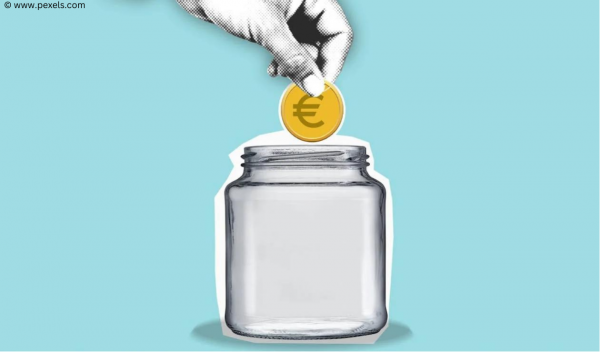"Doing less more efficiently. EU budget should focus more on areas where EU action is really needed, says Rob Jonkman

The European Commission presented the long-awaited proposal for the EU budget for the next seven-year period of 2021-2027 on 2 May 2018. Titled "A Modern Budget for a Union that Protects, Empowers and Defends", the proposal was unveiled against the backdrop of the UK's departure from the EU as well as of global challenges ranging from climate change to migration. The proposed budget amounts to some €1,279 billion in total and it introduces cuts to both the agricultural and cohesion policies while reinforcing centralisation of management and spending of EU funds. The ECR Group in the CoR supports efforts to crate a leaner EU budget but feels that the areas for cuts have not always been correctly identified. The Group has raised its concerns about centralisation of the budget and introducing cuts in areas of added value.
The Multi-annual Financial Framework (MFF), if approved in its current state, will introduce a cut of up to 10% to the EU's Cohesion Policy. The policy aims to help the EU achieve its treaty obligation of decreasing the development gap between regions. This cut represents, in 2018 prices, €35 billion. Such a move would be unprecedented as it would, for the first time, decrease the EU's Cohesion Policy's proportion on the overall EU spending below 30%.
Meanwhile, the Commission is proposing to increase the amount of money the EU spends on its external action around the globe, which in many cases represents a duplication of national efforts and has come under scrutiny over whose pocket the money ends up in.
The European Commission argues that its proposed cuts to the EU's Cohesion Policy are necessary both due to lower revenues resulting from the UK's withdrawal from the EU and emergence of new challenges, which put pressure on the budget's expenditure.
“There is a clear need to reform the EU's budget. This should not, however, be at the expense of projects at home that bring added-value. The EU should not be putting more into external action at the expense of domestic projects valued by taxpayers" said ECR Group's economic policy spokesperson Rob Jonkman (Alderman in Opsterland in the Netherlands).
During the May Plenary session at the European Committee of the Regions, Rob Jonkman raised the concerns of the ECR Group with the EU Commissioner Günther Oettinger, who is responsible for drafting the EU budget. In his intervention, Mr Jonkman stressed that "the EU should focus on delivering value for taxpayers' money without further centralisation of spending. The budget's priorities therefore must be in areas where the EU can bring added value." He added that the EU needed 'good management' which did not equate 'centralised management'.
The ECR Group also expressed its concerns about the alignment of Cohesion Policy with structural reforms, in particular through the proposed Reform Support Programme. This would lead to further centralisation of spending and would, along with other measures, diminish the importance of local and regional authorities. It is therefore important to reinforce the principle of subsidiarity and the need for decisions to be made at the closest level to citizens.
Moreover, Mr Jonkman warned against the proposed link between EU funds and the rule of law that would allow the EU to suspend, reduce or restrict access to EU funding to a Member State when the Commission judged the rule of law not to be upheld. He explained that "we would be mixing apples and pears. Issues like rule of law are handled by the national government whereas a key bestiary of EU Funds like Cohesion Policy are local and regional authorities. Trying to use Cohesion Policy as a stick would only jeopardise the goal encoded in the EU treaties of achieving territorial cohesion".

